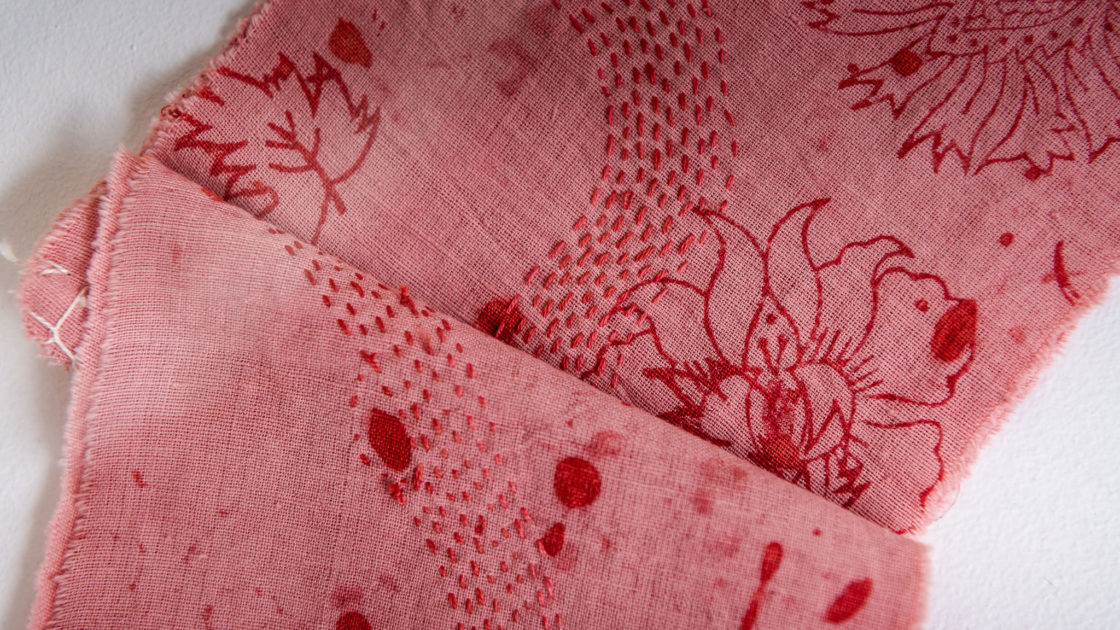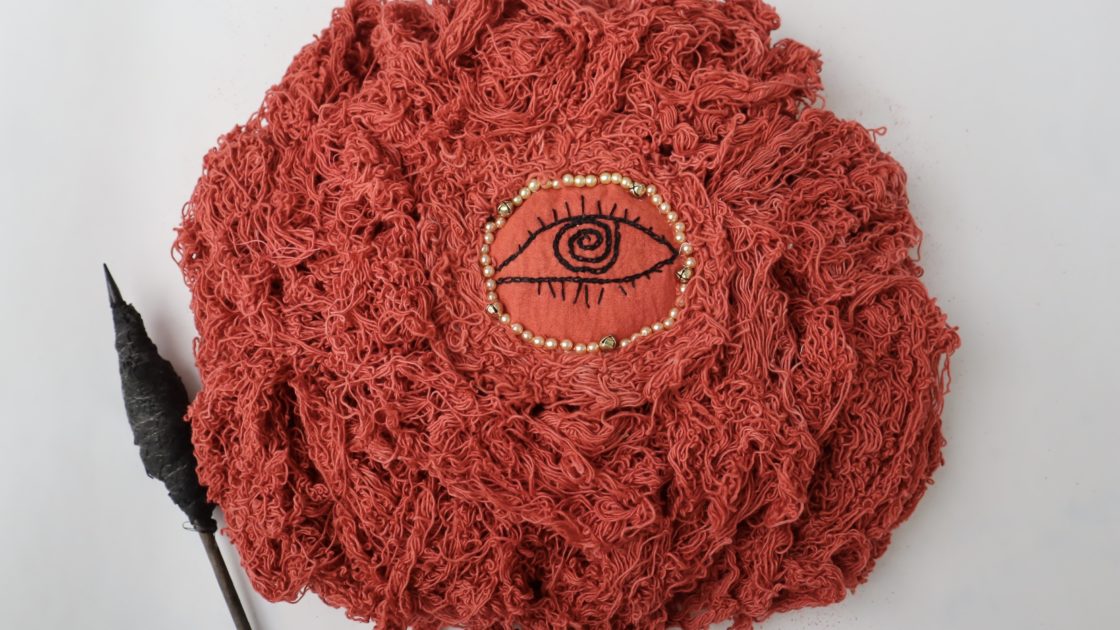Madhu
Threadbare Narratives
Threadbare Narratives alluded to the dark histories and myths surrounding cotton and the movement of knowledge, raw materials and people that underpin the history of the Lancashire cotton industry.
It was the culmination of a year-long project involving the artist, Madhu, visiting museums in Lancashire, London and Manchester to see Kalamkari textiles and chintz from the Coromandel coast in South India and the work draws on their visual language and the craft practices of block printing and natural dyeing that define them.
Indian chintz, a lightweight, washable cloth, became a popular choice of clothing in European markets in the 17th and 18th centuries, markets which the British were keen to capture, using the cottage industry skills in hand spinning and weaving in Lancashire and its natural resources of fast flowing rivers and coal.
Throughout the 1700s the government passed successive Calico Acts to regulate the cottage industry production in the north of England, to stem the production of cotton goods, muslin and calico, and their export from Bengal and instead to transport raw cotton to Liverpool and on to Lancashire to kickstart a mechanised cotton manufacturing industry here.
This led to the collapse of India’s global markets, the slow loss of skills and, eventually, loss of heritage.
These small talismanic and personal works were made responding to the hidden histories in these textiles, with the deliberate use of free hand stitch slowing the process down to deal with difficult and unresolved histories. Madhu used Khadi cottons from India, calico and discarded threads from Queen Street Mill, in an attempt to bring together the entangled histories of the Indian Subcontinent and Britain. Khadi is an artisanal cotton that draws on a long held tradition in South India, revived in the middle of the last century, spurred on by Mahatma Gandhi in a bid for independence from British rule, self-sufficiency and national pride. This material is of personal significance to Madhu, in memory of her father who was an ardent Gandhian and chose Khadi and handloom cottons for his clothing.
Thanks to Arts Council England and The Lancashire Textile Gallery for supporting the ongoing development of this work.
Dates
29/09/2023 – 29/10/2023

